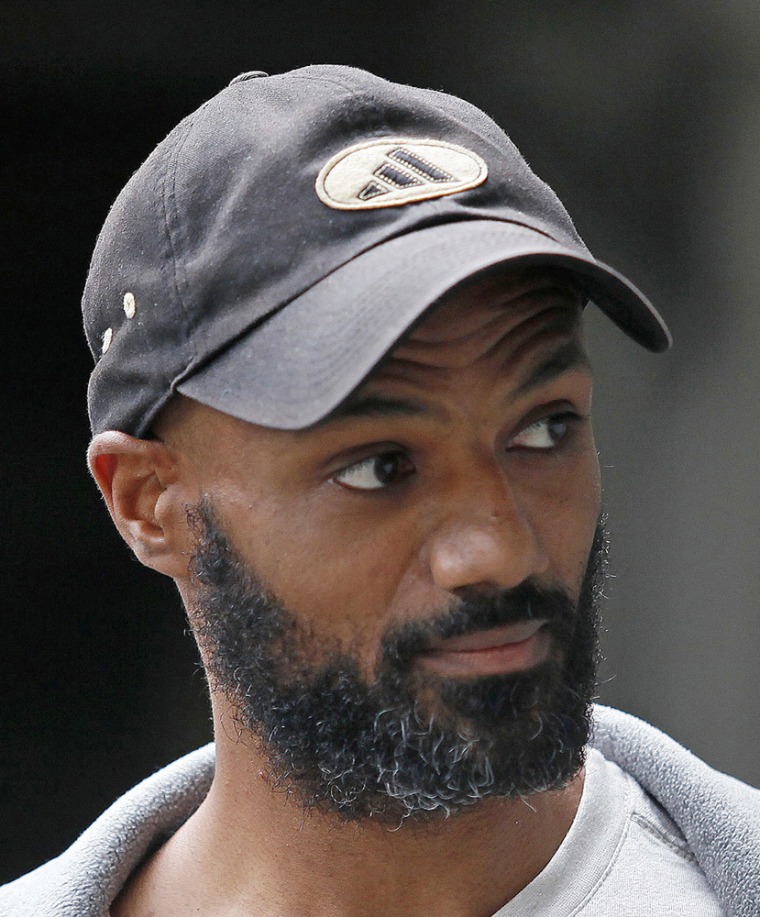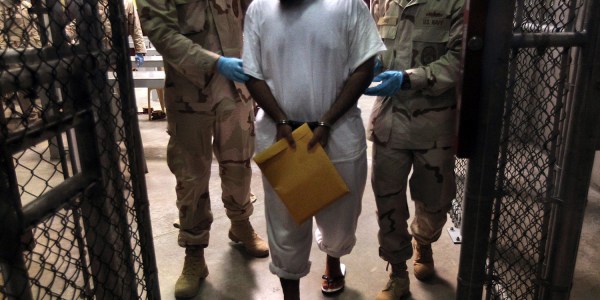Britain will make payments to 16 former Guantanamo Bay detainees in an out-of-court settlement to end a series of potentially embarrassing legal battles over torture allegations, the government said on Tuesday.
The ex-detainees, Britons or British residents, were claiming damages from the government over allegations that they were mistreated during their detention abroad with the knowledge and in some cases the complicity of British security services.
"The government has now agreed a mediated settlement of the civil damages claims brought by detainees held at Guantanamo Bay," said Justice Secretary Kenneth Clarke, adding that details were subject to a legally binding confidentiality agreement.
"No admissions of culpability have been made in settling these cases, nor have any of the claimants withdrawn their allegations," Clarke said in a statement to parliament.
He did not say how much money the ex-detainees would receive. British media had earlier reported that the settlement totaled several million pounds.
Britain's ITV News reported that at least 7 ex-detainees would receive payments, and claimed one man would be paid more than one million pounds ($1.6 million). It did not cite its sources.
"The alternative to any payments made would have been protracted and extremely expensive litigation in an uncertain legal environment in which the government could not be certain that it would be able to defend departments and the security and intelligence agencies without compromising national security," Clarke told parliament.
The civil cases risked exposing sensitive evidence that was potentially embarrassing for the government and could have compromised cooperation with key partners like U.S. agencies.
Diplomats and government officials previously had confirmed negotiations were taking place with lawyers for 12 former detainees, all either British citizens or residents, who had begun legal action against the government.
A precedent was set when the previous government lost a legal battle earlier this year to prevent the disclosure of U.S. intelligence material relating to alleged abuse by CIA agents.
The material was disclosed during a legal battle by former detainee Binyam Mohamed, who alleged he was tortured in Pakistan and Morocco before being transferred to Guantanamo, and said Britain knew about this. He is believed to be one of the ex-detainees who will receive part of the settlement.
Binyam Mohamed alleged Britain was aware he was severely beaten, subjected to sleep deprivation and had his genitals sliced with a scalpel. A British court has ruled that Mohamed was subjected to "cruel, inhuman and degrading treatment" by U.S. authorities.
Clarke said the cost of fighting the court cases to the end had been estimated at 30 to 50 million pounds ($48-80 million) over three to five years, and the out-of-court settlement would save taxpayers' money.
He also said it would free staff at the security services to focus on important intelligence work. Earlier, Prime Minister David Cameron's spokesman had said about 100 intelligence staff had been working full-time on fighting the court cases.
The heads of MI5 and MI6, the internal and external intelligence agencies, issued a joint statement welcoming the settlement, which they said would "allow the agencies to concentrate on protecting national security."
Two criminal cases and 12 civil cases had been brought against the government before British courts. Police investigations into the criminal allegations were still under way and the government would make a further statement when they had concluded, Clarke said.
Slideshow 9 photos
Guantanamo Bay detention center
British Prime Minister David Cameron was also reportedly concerned that the lawsuits could prompt new arguments over the handling of intelligence provided to Britain by the U.S. and other allies.
Earlier this year, a judge ordered the release of a previously secret summary of CIA documents on the treatment of Mohamed. Under long-standing conventions nations don't disclose intelligence shared by their allies, and the White House reacted angrily to the release.
A payout to former terrorism suspects is likely to strain relations further. Human rights lawyer Philippe Sands said that even if Britain makes no admission of guilt, "it does send out a very strong signal and it is going to cause difficulties with other countries, particularly the United States."
'Torture in freedom's name'
Shami Chakrabarti, director of human rights group Liberty, described the payments as "not very palatable."
, Chakrabarti added: "There is a price to be paid for lawlessness and torture in freedom's name.
"The government now accepts that torture is never justified and we were all let down — let's learn all the lessons and move on."
The settlement paves the way for a planned independent inquiry which is due to examine how much the government knew about the treatment of detainees by allies. It cannot begin until legal proceedings are concluded.
Retired judge Peter Gibson was appointed in July to lead the study and asked to begin his investigation once the lawsuits had been dealt with, and after police conclude criminal inquiries into the actions of two specific intelligence officers.
Police are investigating whether an officer with domestic spy agency MI5 is guilty of criminal wrongdoing over the alleged torture of an ex-Guantanamo Bay detainee. In a separate case, the actions of an officer with overseas intelligence service MI6 are also being investigated.
Britain's government and intelligence agencies have repeatedly denied they were involved in, or condoned, the use of torture.
However, Foreign Secretary William Hague said in August that the government will overhaul current practices based on Gibson's recommendations. "We will act on the lessons learnt, and tackle the difficult issues we currently face head on," he said.
Hague said the inquiry was necessary to "clear the stain from our reputation as a country."

